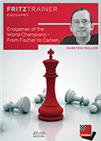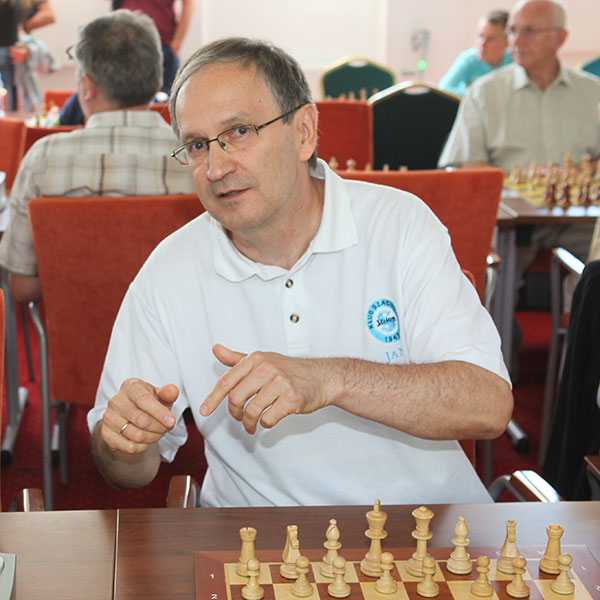Four decades of agony
 Let endgame expert Dr Karsten Müller show and explain the finesses of the world champions. Although they had different styles each and every one of them played the endgame exceptionally well, so take the opportunity to enjoy and learn from some of the best endgames in the history of chess.
Let endgame expert Dr Karsten Müller show and explain the finesses of the world champions. Although they had different styles each and every one of them played the endgame exceptionally well, so take the opportunity to enjoy and learn from some of the best endgames in the history of chess.
This week's pair of games are by Jan Przewoznik from Poland, who turned 61 last month. A psychologist by profession, he was a very strong chess player in his prime, competing seven times in the Polish championship between 1976 and 1992, winning the title itself in 1979 and becoming an IM in 1985. [He also recently authored two articles for ChessBase on decision making: "Nine Indicators" (part 1 and part 2) -Ed.]
The two games he sent me are both very interesting both in their technical and emotional content. He sent the bare bones of notes with the critical positions and I've marked all these as JP. I've fleshed them out just a little adding JS (when I remember).
As he wrote: “Chess is an emotional game. Sometimes emotions excite people for years.” We start with a sophisticated Agony — a game in which he missed a beautiful win. Nevertheless, it comes from 1979, the year when he became national champion a few days later.
Click or tap a game in the game list below the board to switch
There are few opening systems which have been undergoing such a fast and furious renaissance as the 6.Bg5 Variation of the Najdorf System. Inspired by Radjabov’s victories over Anand and Karjakin in 2006, a great number of games have been played since then, meaning that the theory has developed enormously. But even before then it stretched to such distant horizons that makes it all the more important to have someone who can explain the ideas which underlie the variations. That is exactly what Alexei Shirov does on his DVD.
Submit your games and win free Premium!
 At the airport, in the hotel or at home on your couch: with the new ChessBase you always have access to the whole ChessBase world: the new ChessBase video library, tactics server, opening training App, the live database with eight million games, Let’s Check and web access to playchess.com
At the airport, in the hotel or at home on your couch: with the new ChessBase you always have access to the whole ChessBase world: the new ChessBase video library, tactics server, opening training App, the live database with eight million games, Let’s Check and web access to playchess.comDid you enjoy the column and instructive analysis by GM Jonathan Speelman? Do you wish you could have a world-renowned grandmaster analyzing your play? You can!
To submit your games just upload a PGN or ChessBase file (.pgn or .cbv archive), along with your name and e-mail address. Send one success story (Ecstasy) and one loss (Agony).
Tell why you chose them, where or when they were played. Please do include your email address, so Jon can reply, and preferably a photo of yourself for our article.
If your game is selected Jon will contact you personally, and not only will you get free detailed commentary of your games by one of chess’s great authors and instructors, and former world no. 4 player, but you also win a free three-month ChessBase Premium Account!
A three-month Premium subscription to ChessBase Account means you get:
- Premium access to the Playchess server with ratings, simuls, lectures, and live commentary of top games
- Access to all Web apps with no restrictions, such as the Cloud database, and more!
- Full access to the Video archive, which not only includes all the past lectures by Daniel King, Simon Williams and others, but also a large number of full ChessBase products you would normally need to buy in the ChessBase Shop but that you can view for free as a Premium subscriber.
See also:
























